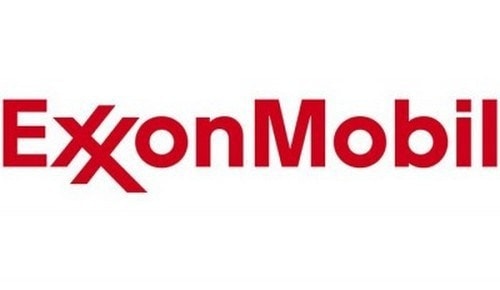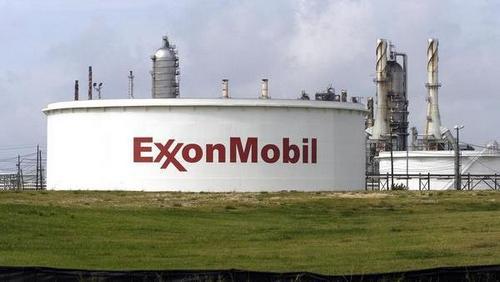The Marketing mix of Exxon Mobil analyses the 4Ps of Exxon Mobil, which includes the Product, Price, Place, and Promotion of Exxon Mobil. ExxonMobil sells motor fuel and other products branded as Exxon. Between 1972 and 1999, Exxon was the company’s registered name. It was initially referred to as Standard Oil Company of Jersey Standard. In 1973, the Enco, Humble, and Esso brands were replaced by Exxon in the United States.
Being one of the largest companies in the gas industry in the United States, Exxon Mobil Corp. had a market capitalization of $313 billion as of September 2015 and approximately fifteen million shares traded daily. With energy interests, Exxon Mobil primarily explores, produces, and distributes oil and natural gas.
With the increased oil and gas industry and market share and growth, Exxon has a lot of competitors. Some of them are listed as;
About Exxon Mobil
- Type: Public Company
- Industry: Oil and gas
- Founded: 1999
- Founder: Standard Oil Company of New Jersey and Standard Oil Company of New York
- Headquarters: Irving, Texas, United States
- Area served: Worldwide
- Key people: Darren Woods (Chairman and CEO)
- Number of employees: 76,000
Table of Contents
Competition of Exxon Mobil
- Royal Dutch Shell, PLC: This oil company has headquarters in the Netherlands and is incorporated in London. It is interested in eight wind energy projects in Europe and North America. Royal Dutch Shell is laying strategies for growth in underwater drilling and integrated gas.
- Chevron Corp: This is the second largest oil company in the United States. It generates power and operates with chemicals and integrated petroleum.
- Valero Energy Corporation: Compared to the above companies, it is relatively small, with a market capitalization of approximately $ 29.3 billion. With headquarters in San Antonia, Texas, the company operates ten ethanol plants and has an alternative project investment of 50 megawatts in wind energy. Valero Energy Corp. provides a viable option to investors interested in ethanol refining and other retail operations.
Exxon Mobil Corp has a daily production capacity of up to 3.95 million barrels of oil and a refinery capacity of 6.5 million. In 2014, the gas company was ranked among the highest revenue-generating companies after raking in a massive $393 billion in revenue.
Exxon Mobil Product Strategy

It is important to note that Exxon, Mobil, and Esso were all businesses formed by Exxon Mobil Corporation. All these companies provide a variety of services and products that are tailored to meet customer needs. With a complete product cycle, ExxonMobil boasts of geological exploration and trades in different oil products for consumer satisfaction.
The product mix of Exxon Mobil in 2023 is as follows(Source)
- Crude Oil: Exxon Mobil is a major producer of crude oil. They explore new reserves and extract crude oil from existing fields. This raw material is a fundamental component for many of their downstream products.
- Natural Gas: Exxon Mobil is involved in the production and distribution of natural gas, which is used for electricity generation, heating, and industrial processes.
- Refined Petroleum Products: Exxon Mobil’s downstream operations include the refining of crude oil into various petroleum products, including Gasoline, Diesel fuel, Jet fuel, Heating oil, Lubricants, Asphalt, Petrochemical feedstocks
- Petrochemicals: Exxon Mobil produces various petrochemicals used in multiple industries, including plastics, chemicals, and manufacturing. Some of their petrochemical products include Polyethylene, Polypropylene, Ethylene, Propylene, Butadiene, Aromatics (e.g., benzene, toluene, xylene)
- Lubricants and Specialty Products: Exxon Mobil offers a variety of lubricants, specialty fluids, and chemicals used in automotive, industrial, and marine applications.
- Natural Gas Liquids (NGLs): NGLs such as ethane, propane, and butane are extracted during natural gas production. Exxon Mobil processes and markets these NGLs for various uses, including fuels and feedstocks for the petrochemical industry.
- Electricity: Exxon Mobil generates and sells electricity, often through co-generation facilities that produce both electricity and steam for industrial processes.
- Technology and Services: Exxon Mobil provides technology, engineering, and consulting services to the energy industry, including solutions for reservoir management, drilling, and production optimization.
- Environmental and Sustainability Solutions: As part of its evolving strategy, Exxon Mobil invests in environmental and sustainability solutions, including carbon capture and storage (CCS) technologies and initiatives to reduce greenhouse gas emissions.
- Retail Fuel and Convenience Stores: Under various brand names such as Exxon, Mobil, and Esso, Exxon Mobil operates a network of retail fuel stations and convenience stores, offering gasoline, diesel fuel, snacks, and convenience items to consumers.
- Alternative Energy: While its core business remains in fossil fuels, Exxon Mobil has also shown interest in exploring and investing in alternative energy sources, such as advanced biofuels and carbon capture technologies.
Exxon Mobil Pricing Strategy
With different business portfolios, ExxonMobil employs various pricing strategies for sales of multiple products. Although this is the case, the international market dynamics concerning oil prices significantly determine ExxonMobil’s pricing. Again, ExxonMobil considers changes in the price of crude oil, government policies, transportation costs, supply and demand, and taxes before setting up its product prices.
Here’s an overview of their price strategy from a digital marketing expert’s perspective:
- Cost Leadership: Exxon Mobil employs a cost leadership strategy to ensure its products remain competitive. By efficiently managing its supply chain, optimizing production processes, and controlling operational costs, the company can offer its products at competitive prices while maintaining profitability.
- Market-Based Pricing: Exxon Mobil’s pricing strategy is responsive to market conditions. They monitor supply and demand dynamics and fluctuations in crude oil prices to adjust their product pricing accordingly. This market-based approach allows them to align their prices with prevailing economic conditions.
- Value-Based Pricing: While remaining competitive, Exxon Mobil also emphasizes the value proposition of its products. They offer a range of premium and high-quality fuels and lubricants, positioning themselves as a provider of superior products that may command slightly higher prices than standard offerings.
- Dynamic Pricing: Exxon Mobil uses active pricing strategies at its retail fuel stations. Prices may vary throughout the day, week, or season based on location, time of day, and regional demand patterns. This approach maximizes revenue by charging higher prices during peak demand periods.
- Customer Segmentation: The company tailors its pricing to various customer segments. For instance, bulk industrial customers may negotiate pricing contracts, while retail consumers may have different pricing structures based on loyalty programs, credit card partnerships, or regional pricing variations.
Exxon Mobil Place Strategy
Place mix refers to the region where the company offers its products and services. ExxonMobil is one of the largest companies in the gas and oil industry in the United States. Regarding revenue, ExxonMobil tops other companies per the Time and Fortune Global 500 list.
Its multinational status is exhibited by its thirty-seven oil refineries in twenty-one countries and employs more than one hundred thousand (100,000) employees worldwide.
Here are five key aspects of their place strategy:
- Global Presence: Exxon Mobil has a widespread global presence with operations in numerous countries. This extensive footprint allows them to access diverse markets and ensure a consistent supply of energy products to customers worldwide.
- Strategic Refinery Locations: Exxon Mobil strategically locates its refineries near major transportation hubs and demand centers to minimize transportation costs and ensure a reliable supply of refined products, such as gasoline and diesel, to local markets.
- Exploration and Production Sites: The company’s exploration and production activities are located in regions with significant hydrocarbon reserves, including offshore and onshore locations. Exxon Mobil invests in exploration projects to efficiently discover and extract oil and gas resources.
- Distribution Networks: Exxon Mobil operates an extensive network of distribution and marketing channels, including retail fuel stations and wholesale distribution to industrial and commercial customers. These networks are strategically positioned to reach end-users effectively.
- Environmental Compliance: Exxon Mobil strongly emphasizes compliance with local and international environmental regulations. Their facilities are designed and operated to meet stringent environmental standards, ensuring responsible and sustainable operations in their operating regions.
Exxon Mobil Promotion Strategy
A company must promote its products for customer awareness and good public relations to succeed in the competitive global oil market. ExxonMobil is well applauded as a corporate citizen for its health care programs. It again focuses on education and encourages young minds to develop more interest in technical subjects, e.g., maths and science, to excel in the current high technology world.
Regarding women’s empowerment, ExxonMobil runs programs that educate women on their importance to society’s development and encourage them to be more productive and development-conscious by taking on managerial positions. It also promotes respect for human rights, educates, trains, and invests in communities and gas companies they serve, and contributes to non-governmental organization projects, not to mention the worldwide promotion of social, environmental, and economic growth. All these forms of corporate citizenship have led to increased market share and brand loyalty since customers associate ExxonMobil as ‘one of their own.’
Exxon Mobil’s promotion strategy focuses on:
- Branding and Advertising: Leveraging its strong brand identity, the company invests in global advertising campaigns to build brand recognition and trust.
- Sustainability Messaging: Exxon Mobil promotes its commitment to sustainability through communication on environmental initiatives and investments in cleaner technologies.
- Digital Engagement: The company utilizes digital channels and social media to engage with stakeholders, share industry insights, and provide information about its products and initiatives.
Some Recent Video ads and Print ads of Exxon Mobil are:
Liked this post? Check out the complete series on Marketing Mix
